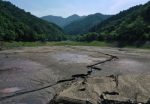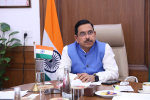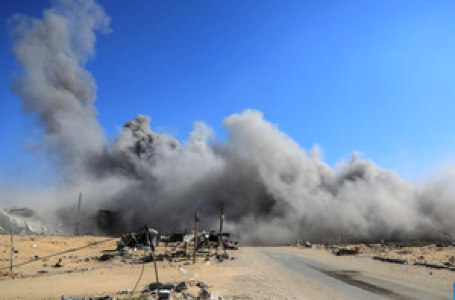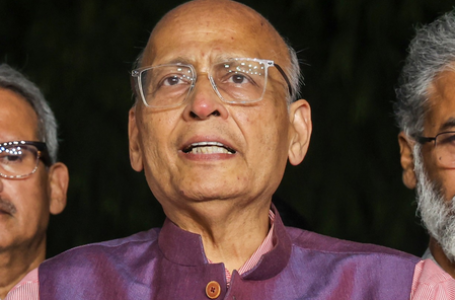By Vishal Gulati
Feb 14, 2020
New Delhi: Indian-origin Alok Sharma, who was named the UK’s new Minister to lead the crucial UN climate talks, has immense challenges and pressure ahead and this is the first real test post-Brexit, climate experts said on Friday.
On the appointment of Sharma, promoted to the post of Secretary of State for Business, Energy and Industrial Strategy in Prime Minister Boris Johnson’s Cabinet reshuffle, Britain-based Christian Aid’s Global Climate Lead, Kat Kramer, told IANS: “Taking on the delicate and grave task of ensuring these crucial talks succeed is a huge responsibility for the UK and its role on the global stage.
“It would have been a big task had Alok Sharma been in post from the beginning, rather than coming in late in the process. It’s now vital they work very closely with the backing of the Prime Minister to both get other countries to commit to new pledges to tackle the climate crisis.
“For developing countries this will require technological and financial support so they can leapfrog our dirty development path and increase their resilience to climate impacts. In order to be a credible host, the UK needs to rapidly step up efforts to reduce emissions at home, not just boast about its 2050 net zero target.”
With the latest data showing global warming-causing emissions still on the rise, this year almost 200 countries are set to submit present strengthened national climate plans.
In the last climate talks in Spain, India, China, Brazil and some developing countries had failed to convince the world to evolve rules for trading internationally carbon credits which help them decarbonise economies at lower cost.
There was also a total collapse on drawing a roadmap for long-term finance from developed to developing countries.
In the last COP the countries failed miserably to agree unanimously on Article 6 of the crucial Paris Agreement rulebook concerning the carbon markets system as the two-week lengthy negotiations concluded two days past the official deadline.
Article 6 of the Paris Agreement provides guidelines as to how international climate markets will work, as a key component of the world’s economic toolbox for addressing climate change.
It allows emission reductions to be implemented in one country and the credit to be transferred to another and be counted towards its commitments (known as nationally determined contributions or NDC).
At the last climate talks, the developed world took the stand of not allowing the ‘junk’ carbon market, which allows buying and selling of carbon emissions, and emerged under the Kyoto Protocol adopted in December 1997 to continue in the exiting mechanism under the Paris Agreement that is coming into force from January 2021.
They blamed faulty mechanism and loopholes in the existing system that failed to prevent double-counting of carbon credits and wanted a new mechanism to be put in place.
Several countries like India have been demanding to carry forward the old carbon credits earned also by companies to meet new climate targets.
The carbon credit system allows countries to reduce their emission reduction targets by accumulating and trading in carbon credits.
As per rough estimates, nations hold close to 4 billion unsold certified emission reductions (CERs). India has a depository of 750 million and China has much more than India.
One CER equals to one tonne of carbon dioxide. The CERs help companies earn billions of dollars by trading them. Currently, there is market but no political platform.
Climate experts told IANS that the only saving grace for India, China and Brazil was that they did not allow the developed nations to completely reject the carbon trade mechanism, still a key component for the full operationalisation of the Paris Climate Change Agreement.
This issue will now be discussed, among other issues, in the next round of UN climate negotiations that Britain will be hosting in Glasgow, Scotland, from November 9 to 20.
Feeling much more needs to be done, UN Secretary-General Antonio Guterres has set 10 climate priority areas for this year.
These include securing commitments from the main emitters of more ambitious national commitments, all countries coming forward with 2050 carbon neutrality commitments, increasing the ambition of national commitments in sectors that were not fully taken in account in the past and curtailing current coal capacity and ensuring no more new coal power plants are built after 2020.
IANS



















